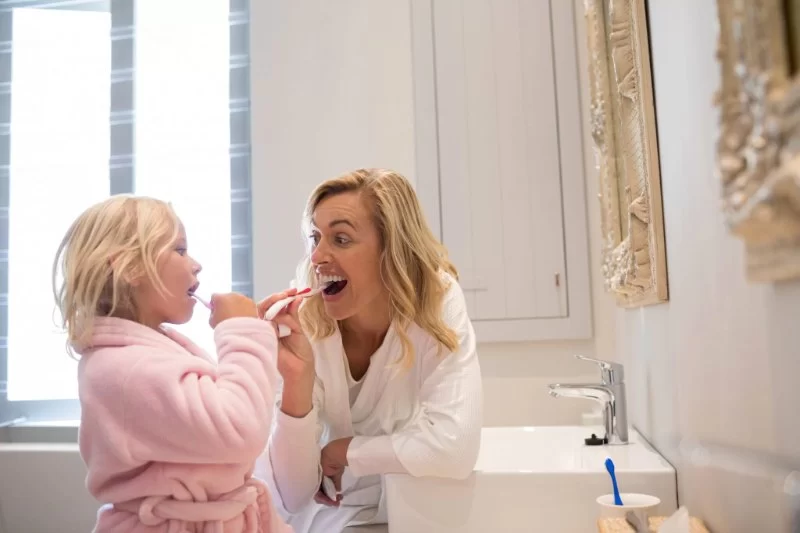
1. Why Oral Hygiene Matters in Relationships
Oral hygiene is more than just about fresh breath—it’s a reflection of personal health, self-respect, and even emotional consideration for your partner. In romantic relationships, it can quietly become a dealbreaker if left unspoken. Whether it’s noticeable bad breath, gum issues, or just inconsistent dental care, the problem may affect intimacy and comfort. But addressing it isn’t easy—especially when feelings and attraction are involved.
Imagine dating someone amazing: smart, funny, kind—but every time you get close, there’s a lingering scent that kills the vibe. Do you stay silent to spare her feelings or risk everything by speaking up? This emotional crossroads is where many people get stuck, and that's exactly why learning how to talk about oral hygiene with compassion and tact is essential.
2. Understanding the Emotional Sensitivity of the Topic
Oral hygiene is a deeply personal subject. Unlike talking about food preferences or hobbies, bringing up someone's bad breath or dental habits can feel like a judgment on their cleanliness or attractiveness. Many people might take offense, feel embarrassed, or even defensive.
2.1. Why She Might React Emotionally
There are several emotional triggers to consider:
- She may not be aware of the issue.
- She might already feel insecure about her teeth or appearance.
- She could take your words as a rejection rather than concern.
3. Choosing the Right Time and Place
Timing and setting are critical. Avoid bringing up oral hygiene during a romantic dinner, a heated moment, or in public. The best scenario is a relaxed, private conversation where both of you feel safe and open.
3.1. Create a Comfortable Atmosphere
You might begin by talking about your own routines first. For example, say something like: "I've been trying this new mouthwash that helps with dry mouth, and it’s made a huge difference in how fresh I feel all day." This opens the door to a mutual exchange instead of a one-sided critique.
4. Using a Story to Start the Conversation
Stories are powerful tools for communication. Consider this:
Last year, Jason met Emily through a mutual friend. Everything clicked. But a few weeks into dating, he noticed she often had persistent bad breath. At first, he ignored it. Then, he started pulling away without realizing it. One day, Emily asked him why he seemed distant. Jason, nervous but honest, told her gently about what he had noticed. To his surprise, Emily was grateful. She’d been battling a dental issue she was too embarrassed to discuss. That conversation brought them closer—because it was built on honesty and care.
Stories like Jason and Emily’s remind us that conversations like these, while uncomfortable, can actually strengthen bonds if handled with empathy.
5. Being Honest Without Being Hurtful
So how do you say it without sounding rude? Here are some phrases you can try:
- “Hey, I noticed something and I wanted to talk about it because I care about you.”
- “Sometimes I notice your breath is a bit different—maybe it’s something dental? I just wanted to let you know in case it’s bothering you too.”
- “I know it’s super personal, and I hope this doesn’t come off the wrong way, but I’d rather be honest than let it become awkward.”
Tone matters more than words. Be calm, kind, and speak from a place of genuine care.
6. Offering Support Instead of Criticism
If you’re going to bring up an issue, be prepared to help with solutions. Maybe suggest brushing your teeth together as a couple routine. Or gift her a set of luxury dental care items with a lighthearted touch. For example, say, “I got us this cool couple’s dental kit—figured we could both up our breath game.”
Support makes a difference. It changes the tone from criticism to partnership. You're not just pointing something out—you’re offering to go through it together.
7. When It’s a Bigger Health Issue
Sometimes, chronic bad breath or dental concerns may point to larger health problems such as gingivitis, tonsil stones, or even underlying digestive issues. If the concern seems serious, you can express it like this:
“I read that certain breath issues can be linked to health stuff—I just thought maybe it’s something worth checking with a dentist. If you want, I know a great clinic through Family Dentistry Online that can help.”
This not only shows concern but also suggests professional help without sounding condescending.
8. Building Long-Term Hygiene Habits as a Couple
Good oral hygiene shouldn’t be a solo mission. Couples who share health goals often grow stronger together. You can build routines like brushing together in the morning, setting reminders for dental checkups, or even making a “fresh breath” agreement before dates.
These habits normalize dental care and make it part of your relationship culture. You’ll not only solve an issue but set the foundation for better mutual care.
If you're not sure where to begin, visit our site, Family Dentistry Online, to find trusted dental professionals, fresh breath kits, and guidance for building a healthy lifestyle together.







 Dental Solutions Market Street4.0 (576 review)
Dental Solutions Market Street4.0 (576 review) Mesa Valley Modern Dentistry4.0 (344 review)
Mesa Valley Modern Dentistry4.0 (344 review) Washington Square Dental4.0 (121 review)
Washington Square Dental4.0 (121 review) Gregg W Jepson DMD5.0 (7 review)
Gregg W Jepson DMD5.0 (7 review) Growing Smiles of Voorhees4.0 (2464 review)
Growing Smiles of Voorhees4.0 (2464 review) Metropolitan Endodontics4.0 (78 review)
Metropolitan Endodontics4.0 (78 review) The Importance of Oral Health Education During Pregnancy for a Healthy Pregnancy
The Importance of Oral Health Education During Pregnancy for a Healthy Pregnancy Best Tips for Brushing Your Teeth Properly for Healthy Gums: Essential Techniques for Oral Health
Best Tips for Brushing Your Teeth Properly for Healthy Gums: Essential Techniques for Oral Health Why Skipping Dental Checkups Can Lead to Bigger Oral Health Problems
Why Skipping Dental Checkups Can Lead to Bigger Oral Health Problems Advantages of Porcelain Dental Restorations
Advantages of Porcelain Dental Restorations How Can Diabetes Cause Tooth and Gum Problems? Preventing and Managing Oral Health Issues
How Can Diabetes Cause Tooth and Gum Problems? Preventing and Managing Oral Health Issues Healthy Habits for Promoting Good Oral Health and Hygiene: Tips for a Healthy Smile
Healthy Habits for Promoting Good Oral Health and Hygiene: Tips for a Healthy Smile